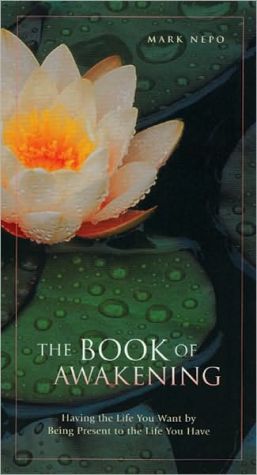From Angels to Aliens: Teenagers, the Media, and the Supernatural
Harry Potter, Buffy the Vampire Slayer, and the Left Behind series are but the latest manifestations of American teenagers' longstanding fascination with the supernatural and the paranormal. In this groundbreaking book, Lynn Schofield Clark explores the implications of this fascination for contemporary religious and spiritual practices. Relying on stories gleaned from more than 250 in-depth interviews with teens and their families, Clark seeks to discover what today's teens really believe and...
Search in google:
Harry Potter, Buffy the Vampire Slayer, and the Left Behind series are but the latest manifestations of American teenagers' longstanding fascination with the supernatural and the paranormal. In this groundbreaking book, Lynn Schofield Clark explores the implications of this fascination for contemporary religious and spiritual practices. Relying on stories gleaned from more than 250 in-depth interviews with teens and their families, Clark seeks to discover what today's teens really believe and why. She finds that as adherence to formal religious bodies declines, interest in alternative spiritualities as well as belief in "superstition" grow accordingly. Ironically, she argues, fundamentalist Christian alarmism about the forces of evil has also fed belief in a wider array of supernatural entities.Resisting the claim that the media "brainwash" teens, Clark argues that today's popular stories of demons, hell, and the afterlife actually have their roots in the U.S.'s religious heritage. She considers why some young people are nervous about supernatural stories in the media, while others comfortably and often unselfconsciously blur the boundaries between those stories of the realm beyond that belong to traditional religion and those offered by the entertainment media. At a time of increased religious pluralism and declining participation in formal religious institutions, Clark says, we must completely reexamine what young people mean—and what they may believe—when they identify themselves as "spiritual" or "religious."Offering provocative insights into how the entertainment media shape contemporary religious ideas and practices, From Angels to Aliens paints a surprising—and perhaps alarming—portrait of the spiritual state of America's youth. Publishers Weekly What Wade Clark Roof did for understanding Baby Boomer spirituality with A Generation of Seekers, Clark does with this insightful, well-written ethnographic introduction to the spiritual lives of a new generation. Clark relies heavily on interviews and first-person reports from teens, then attempts to understand what they are saying through the lens of larger demographic and sociological trends. Many teens (by which Clark means those roughly between the ages of 11 and 21) privilege personal experience over institutional authority and consider themselves spiritual but not necessarily religious. Their spirituality is eclectic and often non-traditional, as they blend elements from the Judeo-Christian-Islamic tradition with new interest in mysticism, Eastern religions and the occult. Clark, a professor at the University of Colorado's School of Journalism, is very attuned to the significance of media in teens' lives, and offers fascinating explorations into what television programs like Buffy the Vampire Slayer and Angel have to say about religion. Most interestingly, Clark also pays attention to the resurgence of "the dark side of evangelicalism," discussing the rise of popular interest in the apocalypse. One later chapter explores the ways some baby boomer parents "intentionally approach the media" and use it to discuss spiritual issues with their children. Clark's writing is engaging and fast-paced, and readers who aren't put off by the book's reliance on social theorists like Bourdieu and Gramsci will find this a surprisingly accessible book. (May) Copyright 2003 Reed Business Information.
Pt. IThe Supernatural Today: Why the Fascination?Introduction: From Angels to Aliens31Angels, Aliens, and the Dark Side of Evangelicalism242Touched by a Vampire Named Angel: The Supernatural in Contemporary Teen Popular Culture46Pt. IIEthnographic Stories: Teens and their Approaches to Media, Religion, and Supernatural Beliefs3The Resisters: Loving Supernatural Legends and Hating Organized Religion774The Mystical Teens: Blurring the Boundaries between Religious and Fictional Legends955The Experimenters: Appreciating Both Religion and the Legends of the Supernatural1176The Traditionalists: Affirming the Boundary between Religion and the Media1397The Intrigued Teens (and the Issue of Angels): Wishing to Separate Religion and Legend, but Having Difficulty Doing So158Pt. IIIContexts and Conclusions8Baby Boomers and Their Millennial Kids: Parental Intentions Regarding the Media, Religion, and Beliefs in the Supernatural1839Religion, Class, and Politics: Discussing Aliens and Angels in the Family and in Society20410Conclusion: The Dark Side of Evangelicalism and the Religion of the Possible224App. AComments on Methodology237App. BSample Information247Notes249Index285
\ Publishers WeeklyWhat Wade Clark Roof did for understanding Baby Boomer spirituality with A Generation of Seekers, Clark does with this insightful, well-written ethnographic introduction to the spiritual lives of a new generation. Clark relies heavily on interviews and first-person reports from teens, then attempts to understand what they are saying through the lens of larger demographic and sociological trends. Many teens (by which Clark means those roughly between the ages of 11 and 21) privilege personal experience over institutional authority and consider themselves spiritual but not necessarily religious. Their spirituality is eclectic and often non-traditional, as they blend elements from the Judeo-Christian-Islamic tradition with new interest in mysticism, Eastern religions and the occult. Clark, a professor at the University of Colorado's School of Journalism, is very attuned to the significance of media in teens' lives, and offers fascinating explorations into what television programs like Buffy the Vampire Slayer and Angel have to say about religion. Most interestingly, Clark also pays attention to the resurgence of "the dark side of evangelicalism," discussing the rise of popular interest in the apocalypse. One later chapter explores the ways some baby boomer parents "intentionally approach the media" and use it to discuss spiritual issues with their children. Clark's writing is engaging and fast-paced, and readers who aren't put off by the book's reliance on social theorists like Bourdieu and Gramsci will find this a surprisingly accessible book. (May) Copyright 2003 Reed Business Information.\ \ \ \ \ Library JournalEvangelical Christian preachers say that the media have always taught immorality and that now they are teaching witchcraft, superstition, and Satanism. Is this all true? A former television producer and marketer, Clark (journalism, Univ. of Chicago) hopes to persuade us that it is not. Admittedly, while flipping through the TV channels or browsing the movie marquees you see Buffy the Vampire Slayer, Angel, Harry Potter, The Fellowship of the Ring, Left Behind, and much more. But, the author argues, the obsessions on parade here are identical to those of Evangelical Christianity, which has long shown interest in such topics in its own literature and preachings. In this objective ethnological study, complete with a formal methodology, Clark obtains the reactions of teens themselves and categorizes them as traditionalists, mystics, seekers, experimenters, and resisters to find out just what influence the media have on teenagers. She concludes that teenagers today display the same deep religiosity and curiosity about religion that have always characterized Americans. We have no cause for alarm. Intelligently written, this study will interest both scholars and casual readers. For all libraries.-James F. DeRoche, Alexandria, VA Copyright 2003 Reed Business Information.\ \








